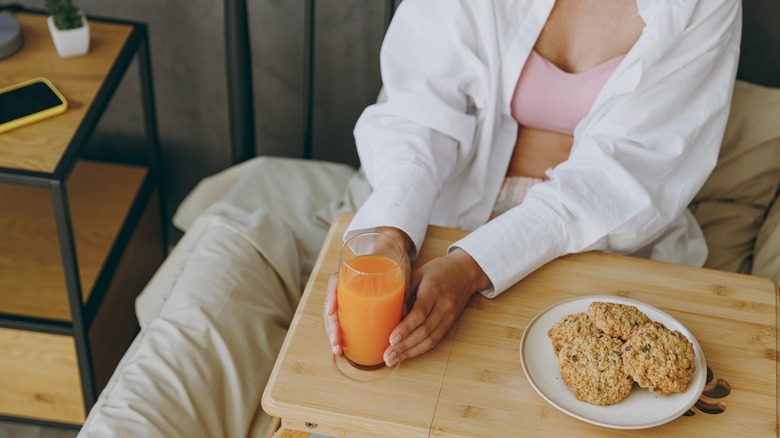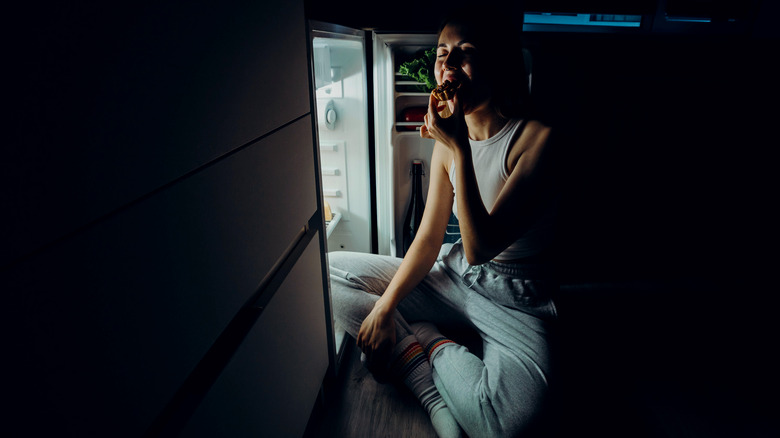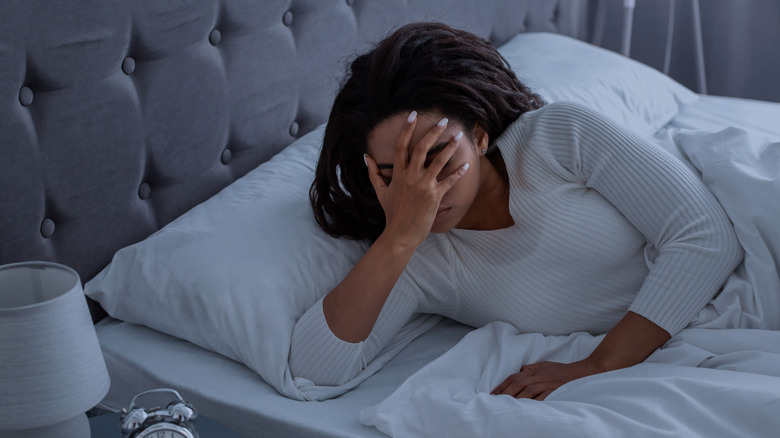When You Stop Eating Sugar, This Is What Happens To Your Sleep
We may receive a commission on purchases made from links.
Sugar is one of the few things that the health community agrees can be bad for you, especially when over-consumed. From weight gain and associated health concerns, heart disease, type 2 diabetes, and cancer risk, to skin aging, acne, depression, and lack of energy, eating too much sugar can have detrimental effects.
So, it comes as no surprise what happens to your body when you stop eating sugar. You'll have better control over your weight, your energy levels will be higher, you'll feel better mental health-wise, your skin will thank you, and you'll reduce your risk of several diseases.
Did you know that abstaining from excess sugar can influence how well you sleep too? In short, you will experience quality sleep if you keep control of your sugar intake. According to a 2016 study published in the Journal of Clinical Sleep Medicine, high-sugar diets can decrease the duration of slow-wave sleep. Slow-wave sleep, also known as "deep sleep," is restorative in nature. It affects growth, memory, and immune function. Per a 2022 study published in the American Journal of Lifestyle Medicine, women who consumed a lot of sweet treats reported generally poor sleep quality. Let's take a look at how sugar consumption affects sleep quality.
A high-sugar diet can disturb sleep
For starters, consuming a high-sugar diet can lead to a vicious cycle that results in poor sleep quality. Spikes and sharp drops in blood sugar levels brought on by high sugar consumption can throw your system out of whack and lead to lethargy and hunger. According to a clinical psychologist who specializes in sleep disorders, Dr. Michael Breus (via The Guardian), this is where the domino effect starts. You may end up feeling hungry at night too, and reaching for more sugary treats to curb that hunger can cause further spikes in blood sugar levels and mess with your sleep.
Your body interprets sugar as energy and prepares you for activity, when in fact, what you should be doing is getting ready to wind down. Poor sleep brought on by this overstimulation can further perpetuate out-of-control hunger cues and lead to more sugar cravings, per the clinical psychologist.
Additionally, blood sugar increases, and the resulting crashes, can also lead to thirst and the need to use the bathroom at night. This can result in disturbed sleep as well. Plus, "sugar uses up a lot of magnesium [magnesium helps regulate blood sugar], which you need for sleep," per nutritional therapist Charlotte Watts and co-author of "Good Mood Food" (via The Guardian). Magnesium regulates gamma-aminobutyric acid, or GABA, the neurotransmitter responsible for calming the nervous system. It also promotes muscle relaxation and melatonin production, while decreasing the stress hormone cortisol. All of these functions aid sleep. There are more roundabout effects of sugar on sleep too.
Excessive sugar can cause diseases that affect sleep too
As we mentioned before, eating sugar in excess can lead to weight gain and several health issues like heart disease, type 2 diabetes, high blood pressure, inflammation, and fatty liver disease. Some of these diseases can negatively impact sleep.
Weight gain is a risk factor for sleep-related conditions like sleep apnea. When your breathing repeatedly stops and starts, you gasp for air during sleep, and you have insomnia because of this sleep disorder, you can experience daytime sleepiness, irritability, and tiredness. Heart health can influence your sleep too. For example, shortness of breath is a symptom of congestive heart failure, a condition that could be caused by poor diet, diabetes, and weight gain, which can make falling and staying asleep challenging. People with type 2 diabetes have a higher risk of developing sleep disorders, as well. Insomnia is also an all-too-common reality in people with hypertension.
The knowledge of what happens to your body when you sleep can make you want to focus on sleep hygiene habits like switching off devices a few hours before bedtime and winding down with a good book or warm bath. Why not consider your sugar consumption while you're at it? While on the topic of diet and sleep, you may also want to know the connection between carbs and sleep.



